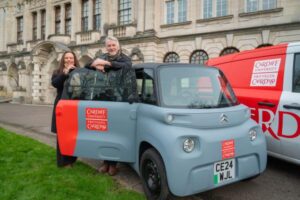Glasgow research hub will boost climate resilience
£10m research hub will boost Glasgow’s transition to climate resilience.
University of Glasgow researchers will work in partnership with Glasgow City Council to create transformation projects across the city and embed sustainability into the wider socio-political system.
The project, which has received £10m from the Natural Environment Research Council, will:
- Transform urban river edge land use to firstly, identify areas to create urban corridor parks that will act as flood storage areas to help manage flood risks for city homes and businesses, and secondly, build more urban nature such as salt marshes for improving urban blue space quality for wildlife and people whilst improving societal resilience to climate change.
- Review and deliver improved biodiversity by restoring and connecting habitats that are currently isolated across the city by mapping important species of birds, mammals and working with local agencies to implement suitable management of greenspace to increase connectivity between core habitats.
- Regenerate derelict and polluted land into spaces that mineralise greenhouse gases and trap organic pollutants into building materials for the future.
- Improve air quality and reduce CO2 through changing travel behaviours by increasing uptake of active travel including cycling, wheeling and walking to reduce car journeys.
- Develop sustainable low-carbon energy solutions at the community scale that empower local people as active energy citizens to co-create clean energy demand.

Professor Toney said: ‘We’re delighted to have received this funding from the Natural Environment Research Council, which is a significant boost to delivering Glasgow’s post-COP26 legacy.
‘GALLANT builds on the Green Recovery Dialogues, a series of discussions between the University, Glasgow City Council, businesses and community groups. As a result of those conversations, we were able to identify areas for urgent action in the recovery from Covid toward achieving the city’s net-zero climate resilience objectives.
‘Using Glasgow as a living lab is an exciting opportunity to collaborate with communities and stakeholders across the city to deliver tangible environmental solutions that also improve public health, wellbeing, and move us toward a green, inclusive economy.’















